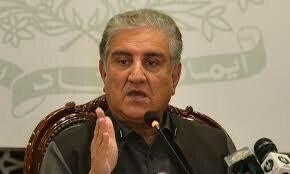Reshaping railway a Herculean task

LAHORE, June 16: The new government decision to reshape Pakistan Railways and the subsequent policy statement by Minister In-charge Khwaja Saad Rafiq regarding making it a ‘corporation’ has created doubts about the move enormity of which seems no less than cleaning of Augean stables.
After assuming the charge, Saad Rafiq had on June 13 announced that the Pakistan Railway would be turned into a corporation governed by a restructured (railway) board.
This is not for the first time that revival of the railway board has been sought. In 2005, the then minister of state, Ishaq Khan Khakwani, had raised voice for the railway board’s autonomy. Later, four retired principal officers of Pakistan Railways had in 2011 seconded Khakwani’s proposal.
“Making railways a corporation may prove a Herculean task (for the government) as it will need the intervention of powerful Council of Common Interest, governed by Articles 153 and 154 of the Constitution,” maintains Mr Khakwani who was deputy chief engineer in the PR when he resigned in 1989.
“Before giving a policy statement about what he intends to do with PR, Khwaja Sahib should have spent some days looking into the issue as to why the organisation has not yet been privatised or turned into a corporation? Being a minister is one thing and getting to decide the issue to turn the railways into a viable organisation is totally a different ball game.
“The first thought which comes to mind on seeing the allocation of portfolios is that the PR is not high on Nawaz Sharif’s agenda. In the prime minister’s team, if at all anyone has dealt with railways it is Sardar Ayaz Sadiq. Khwaja Saad Rafiq has never dealt with any serious issue in his tenures at national level. The PM has chosen a star performer at TV talk shows to pull the railways out of debt, corrupt practices and lethargy syndrome from which it suffers at the hands of its managers… (it would be) a huge task for Khawja Sahib,” said Mr Khakwani.
“For the PR to turn around, it has to be taken out of the ministry’s control and run professionally by a new Railway Board with some seed money injected. The new board members be hired locally and or from overseas. Selection of professionals cannot be restricted to Pakistan alone. It should include chartered accountants, transport specialists, engineers (of various fields), security managers and economists. This Board can later hire a law firm and a real estate developer to assist it in achieving its goals. Above all, the state has to adopt a principle that organisations cannot come into competition with each other — case in point being National Highways, NLC and railways. If at all these have to be developed that must not be at each other’s cost,” maintained the former minister.
Four retired principal engineers of the PR had in 2011 proposed restoration of the old organisational setup of the Railway Board in a report “by re-designating the posts of additional general managers as member (mechanical), member (traffic) and member (engineering) whereas the post of member (finance) already exists with the ministry of railways.
“The set-up was tried for more than three decades without any problem but was changed on the recommendations of Irish consultants appointed by the World Bank,” says the report prepared by Asad Saeed, Aurangzeb Khan, Anwar Saeed and Iqbal Khatri.
Both Mr Asad Saeed and Mr Khan served as general managers (operations) and retired as GM (M&S) while Mr Saleem as managing director of Locomotive Factory, Risalpur and Mr Khatri as additional general manager (passengers).
“The views expressed by senior (serving) officers indicate there is often a clash of opinion between chief mechanical engineer and AGM (mechanical) on technical issues which is damaging for the organisation. With functioning members of Railway Board at the Ministry in Islamabad deciding all policy matters and general manager (operations) dealing with all day-to-day affairs and acting as chief executive of PR, decision making will be smooth and quick which is the need of the hour,” said the Report on Deterioration in Availablity and Reliability of Locomotives.













































